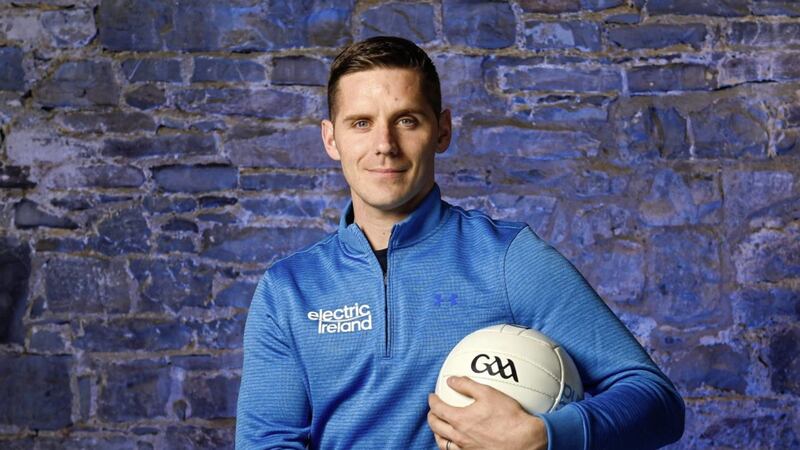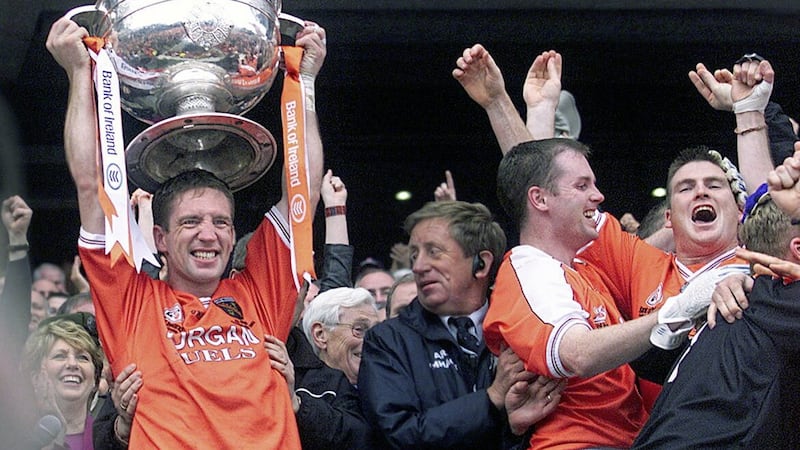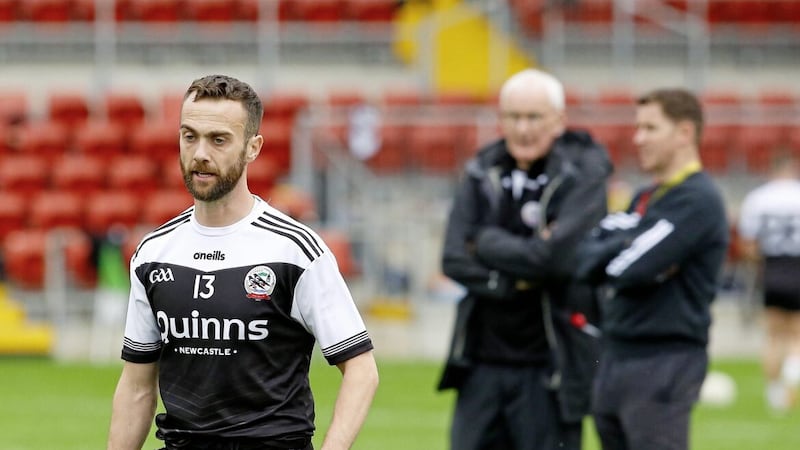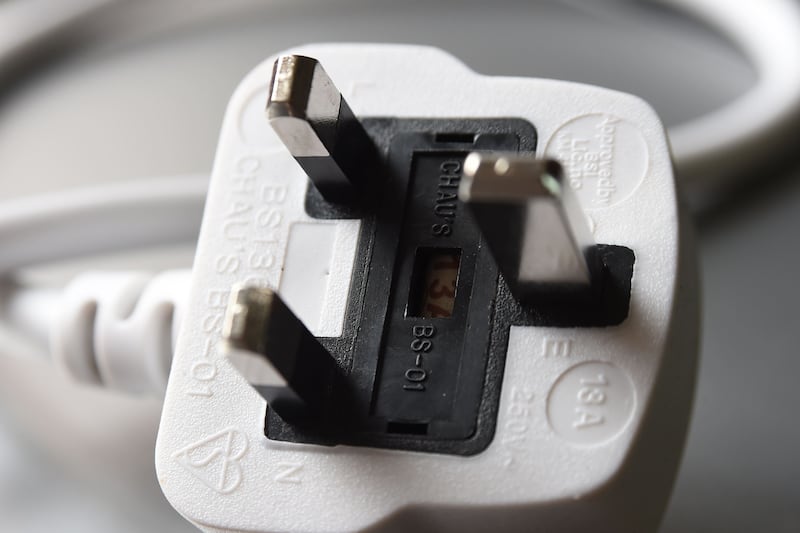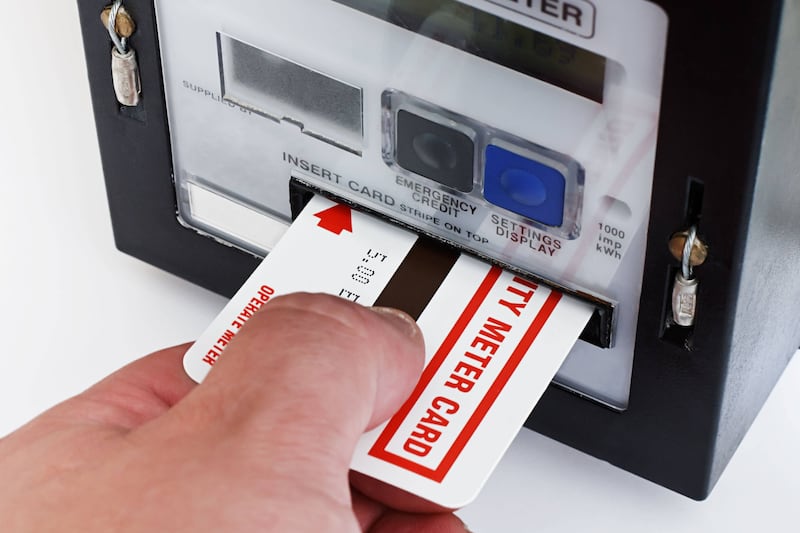Cork's 2010 All-Ireland winning corner-forward Daniel Goulding was in Dublin yesterday announcing his involvement as a judge in the Electric Ireland GAA Minor Star Awards for 2018. Brendan Crossan caught up with the Eire Og clubman about the demise of Cork, the Super 8s and that one-point win over Down in the 2010 All-Ireland final...
Brendan Crossan: You have been recruited onto Electric Ireland’s Allstar minor awards panel.
Daniel Goulding: It’s enjoyable. I was at Kerry and Clare game recently and I was just thinking, a 17-year-old, playing in front of a big crowd… It’s a great grade, probably the best grade to play; the closest thing to 15 against 15 and that’s what it makes it so good.
BC: What’s wrong with Cork football right now?
DG: Yeah, it’s worrying signs for anyone that has any affection for Cork football. I suppose the last two performances [heavy defeats to Kerry and Tyrone] have been an eye opener to the whole county. There needs to be a review of what’s going on. Between the Cork County Board and the clubs, things need to be looked at fairly urgently here.
BC: As an ex-Cork footballer it must have been frustrating for you to watch those two games…
DG: After the win over Tipperary there was a positive air around but the way we died a death against Kerry in the Munster final was extremely worrying. There is no consistency in terms of the tactics we use.
There is no confidence or identity in our team. I’ve been in games where you’re shell-shocked after 25 minutes and it’s really hard to get out of it. You could see that, especially in the Tyrone game. Cork were gone after 25 minutes. Like, there are some very good players in that Cork team and they look like they’re lacking confidence.
BC: There are only a few elite teams in the country. Can they be caught?
DG: To be honest, the elite teams are getting better. You look at Dublin and they’re only going one way. There is a huge gap between the top four, five or six teams and everyone else and that’s not going to be an easy fix for most counties.
You can’t be a hugely conditioned team overnight. Dublin, Tyrone and Kerry have been perfecting their tactics over the last five or six years.
But Dublin are amazing. They can go into a new game and employ a new tactic for one aspect of the game and still do everything else they’ve always been doing.
They put Coin Murchan on Ryan McHugh last Saturday. Only Dublin could that. That’s the level Dublin are at.
Eamonn Fitzmaurice is getting a lot of flak down in Kerry but Kerry are still tactically very aware of what they’re doing.
The work that goes into a defensive structure that actually works and everyone knows their roles takes a lot of time, so there is a huge gap for these Division Two teams to close and I don’t see it closing any time soon.
BC: What’s your thoughts on the Super 8s?
DG: I’d like to take a proper assessment after it’s completed.
There are a few issues: there are too many dead rubbers in the Championship at the start of the year and you were wasting the last month before you got your best teams playing each other.
And there’s no benefit from winning your provincial title. Kerry and Donegal are playing their last games at home in the Super8s and they could be out of the reckoning by then.
Do you need to use Croke Park at all for the Super 8s? People will definitely go and see their teams if they were at home more often and you’d have bigger crowds there.
Supporters are thinking: ‘Why would I go now when I could go to a semi-final or a final?’
There’s probably a little tinkering needed. The games weren’t great to watch last week but it’s very hard to judge on one round of games. We should give it the benefit of the doubt until we see another round.
BC: Sligo footballer Neil Ewing did a recent interview where he felt the GAA should be coming up with ways to close the gap between counties rather than perpetuating them with formats such as the Super 8s. What’s your thoughts?
DG: I read the article and Neil made a lot of valid points. He would probably be in the lower tier and wants to play in the All-Ireland.
From a holistic point of view, you’ve too many parties to keep satisfied. You have the top teams who want to play competitive games every day.
You have the lower-ranked teams who want to challenge for an All-Ireland but take some hockeyings along the way.
And then you’ve fans who give out about dead rubber games, and that’s understandable.
There a lot of people to keep happy.
Personally, I would probably go with a two-tiered systems. I just see to many dead rubber games and football is losing its appeal. I just think the Leinster and Munster Championships are not competitive enough and by the time the last round of Qualifiers and the Super 8s start, it’s too late in the season for the amount of games that are being played.
To promote competitiveness you need teams at the same level playing each other regularly. The winner of the lower tier could automatically go up to the top tier and one comes down.
BC: The Cork team you played on won one All-Ireland [2010]. Should you have won more?
DG: We probably should have... We had one or two occasions where we could have won it but at the same time we were still playing good teams.
We lost the final in ’09 after being in a good position at half-time but that was a very strong Kerry team who had numerous All-Ireland medals behind them.
We lost to Donegal in 2012 and were in control until half-time but didn’t take our chances. Donegal’s tactics kind of stifled us in the end.
They were a couple of years where we were going really well and possibly could have won another.
BC: What were your memories of that Down team Cork beat in the 2010 final? Were Cork confident?
DG: We were confident in our own ability but we’d lost two of the last three finals. That Down team was awesome in the Championship that year.
Their forwards were brilliant – Marty Clarke and Benny Coulter. They came through the back door and they were battle-hardened and they proved a very tough nut to crack in the final.
I think were probably the better team over the 70 minutes but we only showed that for 25 minutes of the second half. That was a good Down team – they beat Kerry on the way to the final.
BC: Was winning the All-Ireland all what you’d dreamed about?
DG: I remember the celebrations on the pitch were brilliant.
BC: Pitch invasions were banned that year…
DG: No pitch invasion but I remember we were running around the place like lunatics. I remember getting on the bus afterwards and I wasn’t even happy, it was just a release of energy because we’d lost two finals before that. I remember I had no energy whatsoever.
We enjoyed ourselves for about three months and I remember thinking: ‘God, Conor [Counihan] has a job on his hands getting us fit again.’ It was a great time.
BC: Two of your former Cork team-mates Colm O’Neill and Donnacha O’Connor have recently retired. How good were they?
DG: Colm was the epitome of resilience, hadn’t a bad word to say about anyone, you would have never known he was injured. He was unbelievably positive, never complained.
On the pitch he was awesome, just a total poacher/finisher. When the pressure came on he was at his best and he had a left and a right leg that he could just boom balls over the bar from anywhere.
Donnacha, like Colm, was an unbelievable leader.
He picked a lot of injuries that people wouldn’t have known about but he just got on with it. On the pitch, Donnacha was one of the most intelligent fellas. His understanding of football and his movement were frightening.
He would do all our running as Colm and me were the lazy corner-forwards. But Donnacha was a great footballer. When the pressure was on Donnacha and Colm were at their best.
BC: What was the best thing about playing inter-county football?
DG: Two things: the friends I’ve made out of it and from a football point of view going down to Killarney for a Munster final or going to Croke Park and the excitement that came with that.
It’s probably very hard to replicate in your life outside of playing football. I remember playing Dublin the 2010 All-Ireland semi-finals, it was a packed house, and there was an energy in the stadium you couldn’t hear yourself think in the parade and I doubt if I'll ever experience anything like that again.
BC: Are you still playing for Eire Og?
DG: Still playing football and hurling.
BC: Did you retire too early from the inter-county game [2016]?
DG: No, I think it was the right time. The game had changed a lot. It was a lot more about athleticism and not about a finishing corner-forward.
I suppose I wasn’t getting as much game-time as I was getting previously. From a selfish point of view I had enough of it. I haven’t missed it since I’ve left which says it was probably the right decision.
